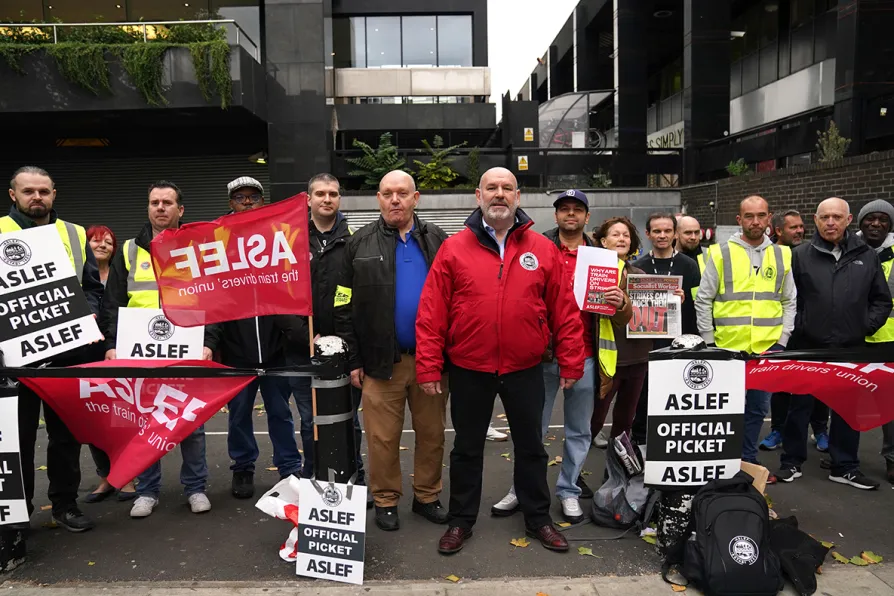The Carpathia isn’t coming to rescue this government still swimming in the mire, writes LINDA PENTZ GUNTER

 Aslef General Secretary Mick Whelan (centre) at a picket line at Euston station in London, as members of the drivers' union Aslef and the Transport Salaried Staffs Association (TSSA) go on strike
Aslef General Secretary Mick Whelan (centre) at a picket line at Euston station in London, as members of the drivers' union Aslef and the Transport Salaried Staffs Association (TSSA) go on strike
SOME people talk, a little cynically, you might feel, about “vested interests” — because, if you think about it, all interests are vested. Of course they are. And Aslef, as the union for train drivers for 142 years, has a vested interest in the success — now and in the future — of Britain’s railways.
We have always had such an interest, a vested interest, if you like, since we first came together in Leeds in 1880 to represent the aims and the aspirations of the locomotive engineers and firemen who shovelled the coal into the firebox on the footplate, in the halcyon days of steam trains that brought the countries, towns, cities, and villages of Britain ever closer to each other.
Transport — by river, canal, railway, and road — didn’t just help move people and goods around England, Wales, Scotland and Ireland. Better transport, and the economic and social benefits it brought in its wake, was what drove the industrial revolution in Britain.

Two-hundred years ago, on September 27 1825, the world’s first passenger railway line was opened between Stockton and Darlington. MICK WHELAN, general secretary of Aslef, the train drivers’ union, reflects on the history – and the future – of Britain’s railway industry

On the eve of the 157th Trades Union Congress, MICK WHELAN, general secretary of Aslef, the train drivers’ union, celebrates victory in his campaign to get dignity for drivers at work












